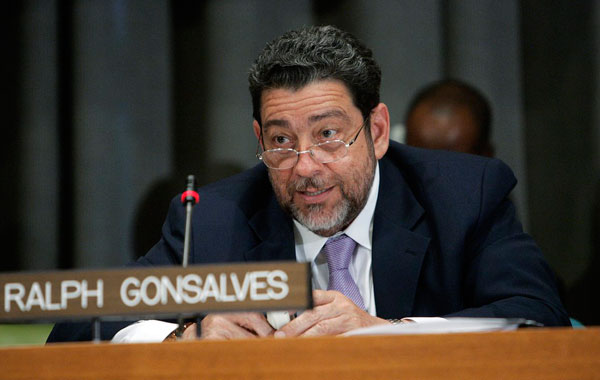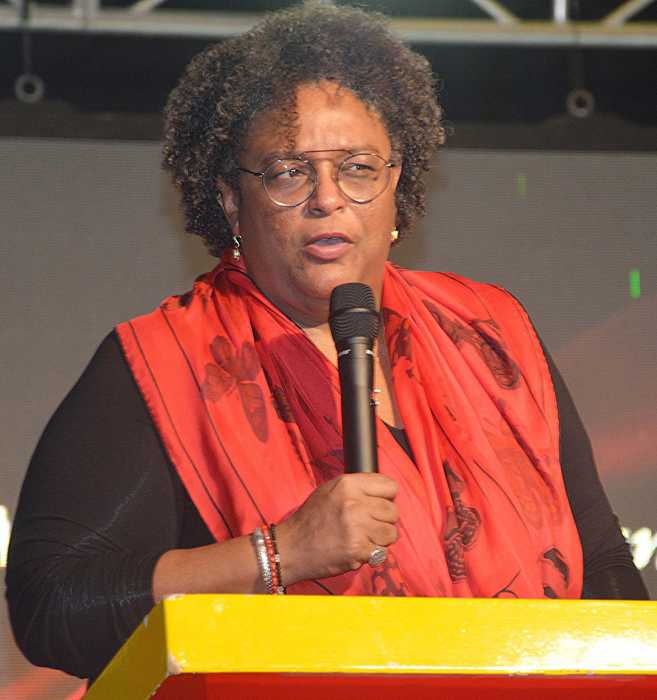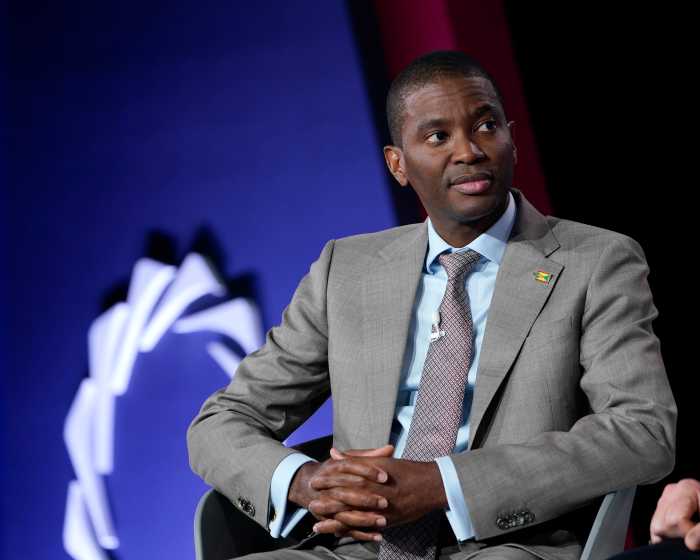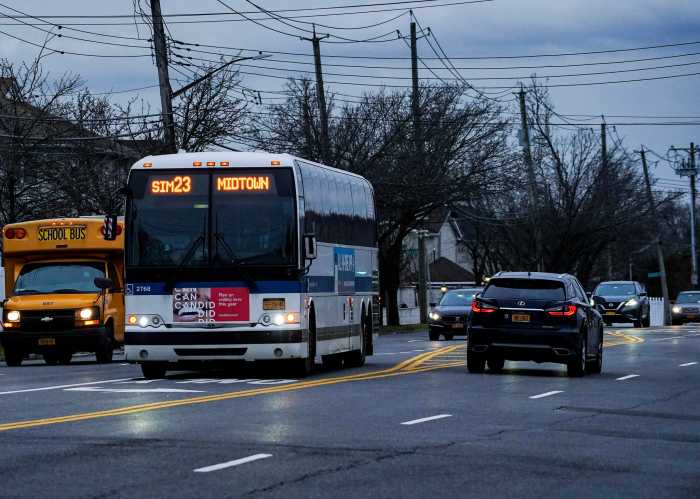Caribbean
A senior official of the International Monetary Fund (IMF) says while economic growth in the region continues to strengthen, it remains fragile and uneven.
In an address to the opening of the 2015 High Level Caribbean Forum, Deputy Managing Director of the IMF, Min Zhu, said the region faces, among other things, possible consequences from the impending rise in U.S. interest rates, the slowdown in China and South America, the opening of Cuba to U.S. tourists and other challenges.
“Although the recovery in the United States looks robust, growth prospects have deteriorated in many parts of the globe compared to a year ago,” he said.
He said in several emerging markets, such as Latin America, Canada and Europe, the economy ‘still looks fragile.”
“It is good then that the 2015 Caribbean Forum keeps the focus on growth, this year in particular on financing growth,” the IMF official added.
Concerning the role of the international lending agency, Zhu said the aim is to boost economic resilience in members as they seek to improve growth objectives.
The lending agency will also enhance technical assistance to strengthen domestic revenue potential; build capacity and institutions and address the special needs of fragile and conflict-affected states.
Antigua
Antigua will host a two-day seminar as part of a project aimed at strengthening the environment and building resilience to climate change in the sub-regional Organization of Eastern Caribbean States (OECS).
The St. Lucia-based OECS Commission said the Sept. 9-10 seminar will include presentations from several stakeholders including the Water and Sewerage Company (WASCO) of St. Lucia, and the Ministry of Health and Environment in Antigua.
The Commission said that the seminar will see to do a stock-taking of the Reduce Risks to Human & Natural Assets Resulting from Climate Change (RRACC) project as it prepares to enter its finale year.
Some of the areas of focus during the seminar will include discussions on the policies, the climate change adaptation measures employed, the public awareness campaign, human resource development and capacity building initiatives.
The Commission said that so far six OECS member states — Antigua, Barbuda, Bequia, Dominica, Grenada, Nevis, St. Kitts, St. Lucia and St. Vincent — have benefited from the RRACC project in reducing risks associated with climate change in relevant sectors, by putting in place 11 projects that demonstrate various measures to build resilience,
The RRACC Project is a five-year development project funded by the United States Aid for International Development (USAID) to the tune of US$9.5 million.
Barbados
Barbados and St. Vincent and the Grenadines recently signed a fishing agreement between both countries.
Barbados Prime Minister Freundel Stuart and St. Vincent and the Grenadines Prime Minister Dr. Ralph Gonsalves, signed the treaties in Bridgetown.
Stuart and Dr. Gonsalves signed the document, which established a maritime boundary based on equidistance between the two countries, and which is the first of its kind between Barbados and a member country of the Organization of the Eastern Caribbean States (OECS), marked “a truly historic moment.”
The Barbados prime minister also pointed out that St. Vincent and the Grenadines was one of Barbados’ key strategic partners in the Caribbean region and that both countries were committed to the pursuit of Caribbean integration, based on a conviction that a strong Caribbean Community was underpinned by strong bilateral relationships, which promote the social and economic interest of their respective states and peoples.
Stuart also praised Barbados’ Ambassador to the Caribbean Community (CARICOM), Robert “Bobby” Morris, who led the Barbados team in the negotiations, as well as the Commonwealth Secretariat, which provided technical advice.
The St. Vincent and Grenadines prime minister agreed that the treaty was a testament to the excellent relationship between the two countries.
Dominica
More than 400 people are now in shelters across Dominica following the destruction of 270 houses across the country with the vast majority from Petit Savanne, which has been declared one of the nine special disaster areas caused by Tropical Storm Erika.
The Caribbean Disaster Emergency Management Agency (CDEMA) said about 405 persons are staying in eight shelters across the island.
CDEMA said 709 people had been evacuated from Petit Savanne — a village on the southeast of the island that was the worst affected by the storm and from which most of the more than 25 who died came.
Prime Minister Roosevelt Skerrit reported recently that preliminary assessments indicated that Dominica suffered more than EC$500 million (US$185 million) in damage to its infrastructure.
He said there was more than EC$612.7 million (US$227 million) in damage to the country’s main roads and bridges alone.
The prime minister said it would take EC$39.5 million (US$14.6 million) to get the main airport, the Douglas-Charles Airport, back into operation and the cleanup is estimated to cost EC$12 million (US$4.4 million).
A total of 35 people are still missing, including 14 from the storm-ravaged Petit Savanne.
Guyana
Guyana Finance Minister Winston Jordan has disclosed that two “reckless” investments by the previous PPP / Civic government have left the National Insurance Scheme (NIS) facing problems paying pensioners.
And with NIS now dipping into its own capital to pay even the minimal benefits to its contributors, he said the money from government’s Consolidated Fund will have to be used to meet the shortfall.
Jordan said the previous Donald Ramoutar administration had done the scheme a disservice by investing in insurance company CLICO, which collapsed in 2009, and the bridge which was opened across the Berbice River in December 2008, linking the country’s Region 5 and 6.
He said between 2009 to now, NIS had lost Guy$1.8 billion (US$8.7 million) and, as if this was not criminal enough, NIS again made another rather suspect investment in the Berbice Bridge — nearly Guy$1 billion (US$4.8 million) — for which it is still to collect income.
The minister insisted that action has to be taken so that Guyanese who have contributed to the scheme are able to get benefits when they need them.
Jamaica
A Jamaican woman was arrested by U.S. Customs and Border Protection (CBP) officers at Fort Lauderdale-Hollywood International Airport with 2.7 pounds of cocaine in the bra she was wearing.
CBP officers found a white, powdery substance tested positive for cocaine inside the bra after noticing abnormalities during an inspection. A total of 2.7 pounds of cocaine was seized and she was turned over to Immigration and Customs Enforcement (ICE), Homeland Security Investigations (HIS).
CBP Office of Field Operations is the primary organization with Homeland Security tasked with anti-terrorism missions at the nation’s ports.
CBP officers screen all people, vehicles and goods entering the United States, while facilitating the flow of legitimate trade and travel.
Their mission also includes carrying out border-related duties, including narcotics interdiction and enforcing immigration and trade laws.
Montserrat
The British overseas territories of Montserrat and the British Virgin Islands have both mobilized support for Dominica following the passage of Tropical Storm Erika.
The government of Montserrat, with the UK Department for International Development support, has decided to deploy a contingent from the Royal Montserrat Defense Force (RMDF) to Dominica to carry out disaster relief work and support Caribbean Disaster and Emergency Management Agency (CDEMA) in their work on that island.
The government of the British Virgin Islands has joined the international community in a demonstration of solidarity for Dominica and has pledged US$100,000 towards relief effort.
British Islands, Premier Dr. Orlando Smith stated that, while the BVI was spared, the government wanted to reach out in a tangible way to the government and people of Dominica.
St. Kitts
Grenada’s Prime Minister Dr. Keith Mitchell, who is chairman of the Organization of Eastern Caribbean States (OECS) says Caribbean governments need to make structural and behavioral changes to the operation if they want to continue receiving assistance from friendly countries.
He was at the time speaking on the margins of an International Monetary Fund (IMF) meeting in St. Kitts. The two-day meeting examined growth in the Caribbean.
It was attended by IMF officials, Central Bank governors from across the region and ministers of finance.
“Look some of the embassies that we have abroad, (we are like) like little mini states, not sharing diplomatic relations together as small states, and wanting people to give you aid while you are spending in those areas. It does not make sense,” Mitchell told journalists.
“We have to understand that people would not give us help if we continue this way. Britain has one embassy in Barbados for the entire Eastern Caribbean and they have billions of pounds but each of us, little mini states, has an embassy in the most costly places in the world. So that’s the sort of thing I am talking about,” he said.
Mitchell pointed to the importance of the citizenship by investment program as an innovative way for the country to help itself.
He said the program in Grenada is now an improved one and lessons have been learnt.
Trinidad
The CARICOM Observer team has declared that voters in Trinidad and Tobago’s General Election were able to cast their ballots without intimidation or harassment and that the elections results reflected the will of the people of Trinidad and Tobago.
Chief of Mission of the 12-member team Orette Fisher congratulated the staff of the Elections and Boundaries Commission, poll workers, political parties, their candidates, the security forces and the people of Trinidad and Tobago for the maturity and disciplined displayed in the conduct of the elections.
However, he told the media, the mission noted the concerns expressed about text messages sent out on the morning of polling and the use of social media websites advising electors how to vote.
Fisher, who is also director of elections of the Electoral Commission of Jamaica, said, “the use of social media, tweets, text messaging and Facebook posts in politics, strictly speaking are not in keeping with the traditional definition of campaigning. In the days we defined campaigning, they were not part of the landscape.”
Noting that social media was being used in other countries in more recent times, he said, he was not aware of anything being done to regulate or monitor.
Fischer said other issues raised by stakeholders, included equal to state media, monitoring of election-related spending and greater participation of women to improve governance and the electoral process.
— compiled by Azad Ali


























